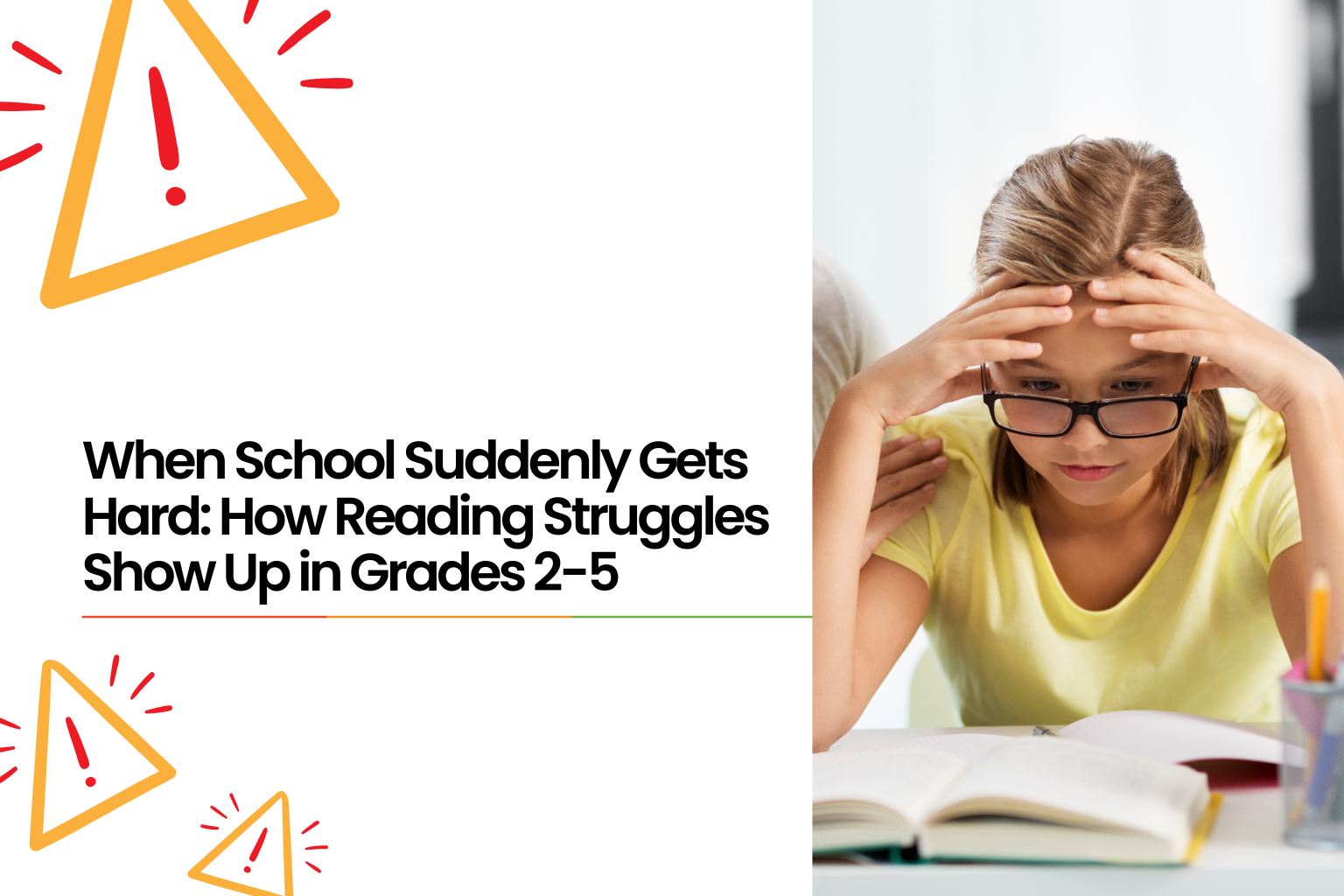The Back-to-School Reality Check: Is My Child Ready?
You’ve stocked up on school supplies, met the new teacher, and organized the calendar. You want to make sure your child has everything they need to thrive in their new grade. But amid the forms and supply lists, there’s a question worth asking: Is my child ready for the increased reading demands this year will bring?
It’s easy to assume that once your child “learns to read” in Kindergarten or Grade 1, they’re set up indefinitely for reading success. But the reality is that your child can do fine with reading in early grades, but still hit a wall in Grades 2, 3, or 4. That's when kids are expected to handle longer, more complex texts, and assignments in every subject require solid reading skills.
If your child suddenly seems less engaged, says school is “boring,” or starts falling behind, the real issue may be that they’re struggling with reading.
Why Reading Issues Can Be Easy to Miss
Your child might coast along for a while, memorizing stories, guessing words from context, or finding other clever ways to keep up. This works—until it doesn’t. Eventually, the gap between your child’s coping strategies and what school requires will become too wide, leaving you wondering, Why is my child suddenly struggling at school?
Reading challenges happen for many reasons and aren’t a sign that your child isn’t smart. Sometimes the cause is a language-based difficulty like dyslexia, but struggles can also come from gaps in instruction, mismatched teaching approaches, or other factors. And because bright kids are often great at finding ways to compensate, it’s easier for struggling readers to slip under the radar.
Red Flags: Signs to Watch For
Reading difficulties don’t always show up first on report cards and test scores. They often sneak into day-to-day moments. Some things to watch for are:
Avoiding Reading
This is the most significant behavioral sign and occurs in everyday scenarios. Your child may give up on reading things aloud, like instructions for a game or a restaurant menu. They may say things like, “This is too long,” or “You read it, I’m tired.” They might avoid reading in front of you altogether because they don’t want you to see them struggle, or because their reading is choppy and full of errors.
Homework Battles
Your child might struggle with or avoid homework that requires a lot of reading. Subjects like science or history are often demanding for a kid with undetected reading issues. If your child breezes through math problems but avoids reading and writing, they may have difficulty with the reading the subject requires, not the content itself.
Other Signs
Does your child ask you to spell basic words for them, or is their writing full of errors? Do they mispronounce common words, even if they know what the word means and use it often? These can be signs that your child has some gaps in foundational reading skills, like phonemic awareness or phonics.
If you’re noticing some of these indicators, it may be worth having a conversation with your child and their teacher. Discussing reading expectations for their grade level and any reading screeners or benchmark assessments your child has completed is a great place to start. The earlier you know what’s happening, the faster you can get the right support.
How Hoot Reading Can Help
We know how hard it can be to watch your child struggle academically and lose the spark they showed for learning when they were younger. At Hoot Reading, a certified teacher will work directly with your child to strengthen the skills they need to read and understand what they’re reading.
Your child’s progress shouldn’t be dimmed by reading challenges. Learn how we can help your child become a fluent, analytical reader.
